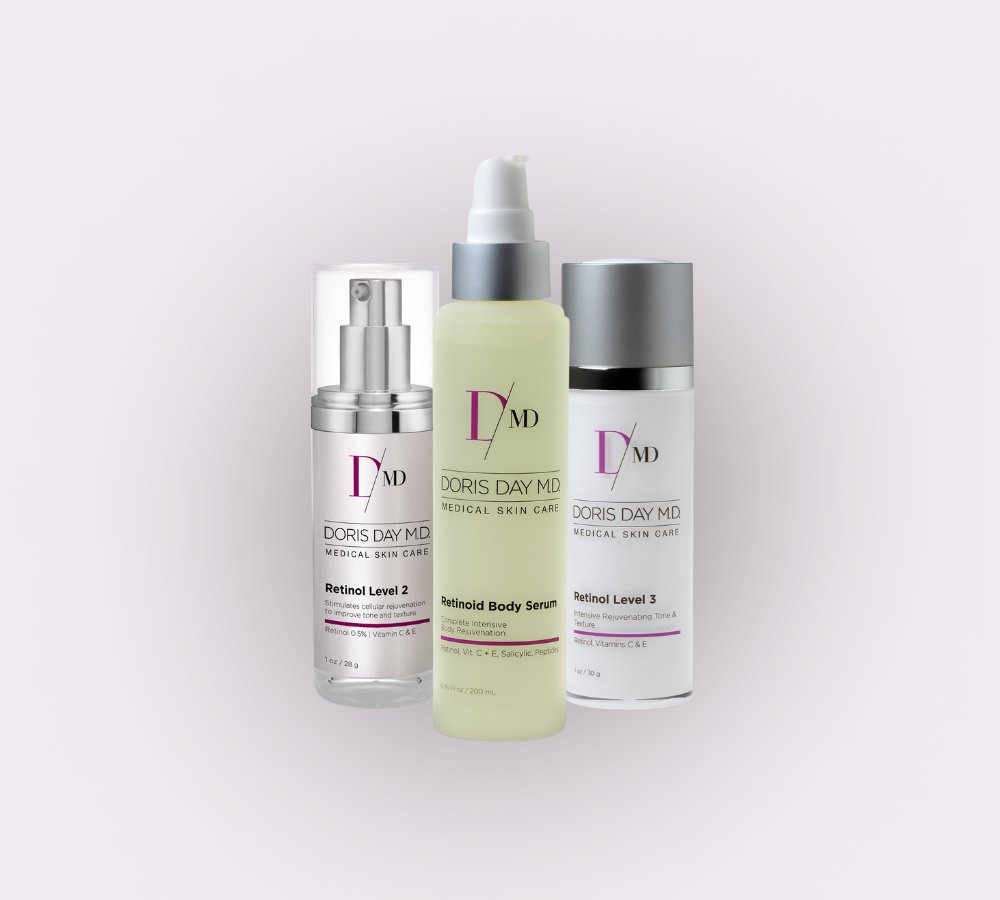Growing up, my father was a big believer in having a healthy diet and also in adding supplements to enhance one’s health and well being. He taught me that supplements should not be used to replace a healthy diet, but to add value to it. I have learned so much regarding which supplements are especially helpful for skin and hair, and it turns out those same elements are great for the brain, bones and heart as well. I am happy to share what I’ve learned and what I now take. It’s never meant to be a prescriptive for you, but meant to help inform you so you can decide, along with your doctor, what is best for you.
The “vita” in vitamins stands for vital for life. Vitamins play a crucial role in maintaining the health and vitality of our skin. They provide essential nutrients that contribute to collagen production, skin repair, and protection against environmental damage. Combining products and foods that contain vitamins A, B, C, D and E along with zinc and magnesium, should be the foundation of your skincare regimen.
Key vitamins and their benefits:
- Vitamin A: This powerhouse vitamin aids in normalizing skin cell growth and regeneration, reducing the appearance of wrinkles and promoting a more youthful complexion. It also helps control oil production, making it beneficial for those struggling with acne. There are many forms of retinol available, the formulation along with supporting ingredients makes all the difference between a product that is irritating vs one that is effective and pleasant to use. The concentration can be confusing because a lower concentration of one form may be more effective than a higher concentration of another. The best way to tell which may be right for you would be to either get a recommendation from your dermatologist or look at the label to see the other ingredients, if it has hyaluronic acid, other antioxidants like niacinamide, it is likely to be better tolerated for those with sensitive skin.
- Vitamin B3 (Niacinamide): This fantastic multitasking vitamin assists in reducing redness, evening out skin tone, and minimizing the appearance of pores. It also helps strengthen the skin barrier, enhancing moisture retention. There are studies that show it helps reduce the incidence of skin cancer when taken by mouth.
- Vitamin C: Known for its potent antioxidant properties, Vitamin C helps combat free radicals, brightens the skin, and helps promote collagen synthesis. It also assists in fading hyperpigmentation from acne or other inflammatory skin conditions, and can improve the appearance of sunspots, giving your skin a more even tone and radiance.
- Vitamin D: Important as both a supplement and is also used topically in many skin conditions like psoriasis to help reduce inflammation and redness. When taken by mouth it helps keep skin, hair and nails healthy and also reduces autoimmune conditions, infections and cancer. It is one of the most important supplements to take since more than 50% of the US population is Vitamin D deficient. You can get your levels tested and supplement as needed.
- Vitamin E: An excellent moisturizing agent, Vitamin E soothes and hydrates the skin, and it helps to repair and protect against damage from UV radiation and environmental pollutants.
Incorporating Vitamins into Your Diet:
While topical applications are valuable, it's equally important to obtain essential vitamins through a nutrient-rich diet. Here are some foods to include in your daily meals:
- Vitamin A: Look for sources like carrots, sweet potatoes, leafy greens, and bell peppers.
- Vitamin C: Citrus fruits, berries, kiwis, broccoli, and tomatoes are excellent sources of vitamin C.
- Vitamin E: Nuts (almonds, hazelnuts), seeds (sunflower, pumpkin), and avocados are great choices.
- Vitamin B3: Foods such as lean meats, fish, legumes, and whole grains provide an abundance of Vitamin B3.
- Vitamin D: Natural sources of Vitamin D include: Fatty fish, fish oils like cod liver oil, nuts, whole eggs and fortified foods are excellent sources of Vitamin D. Please do not rely on sun exposure for Vitamin D production, the damage to the skin and increased risk of skin cancer outweighs the benefits of the amount of sun exposure people think they need to get Vitamin D.
Building a Vitamin-Packed Skincare Routine:
Suggestions for how to incorporate Vitamins into your skincare routine:
a) Cleanser: Opt for a gentle cleanser infused with vitamins to nourish your skin while removing impurities.b) Serums: Look for serums containing Vitamins C and E to protect against oxidative stress and promote collagen production.
c) Moisturizer: Choose a moisturizer that contains Vitamins A, C, and E to provide hydration and essential nutrients to your skin.
d) Sunscreen: Protect your skin from harmful UV rays by using a broad-spectrum sunscreen enriched with antioxidants like Vitamin E.
e) Supplements: Consult with your healthcare provider about incorporating vitamin supplements into your routine to complement your diet and promote overall skin health.
Here’s a list of what I take. Please consult your doctor before starting a new regimen.
Quercetin 500mg-1,000mg 5 days per week
Vitamin D with Vitamin K 3 days per week and without Vitamin K 4 days per week
TA65 - this is telomerase that helps keep my telomeres longer
NR and NMN - this is a precursor of NAD which helps mitochondrial function
N-Acetyl Cysteine- this is a precursor of glutathione, also important for cell energy production
Vitamin C- 1,000 mg per day
Zinc piconolate 50mg- 3 times per week
Magnesium Glycinate- at bedtime
Turkey Tail mushroom extract- twice a day
CoQ10
Resverasirt
Bottom Line:
Incorporating vitamins into both your diet and skincare routine is a winning combination for achieving healthy and radiant skin. Remember, consistency is key when it comes to seeing results, so make sure to follow your customized skincare routine diligently. Additionally, don't forget to consult with a dermatologist to address any specific skin concerns you may have. Embrace the power of vitamins and let your skin glow with natural radiance!


![[The Guide] The Role of Vitamins in Skin Health](http://drdorisday.com/cdn/shop/articles/Untitled_design_-_2023-07-17T132550.194-746592_1-766200_1100x.jpg?v=1718359244)






